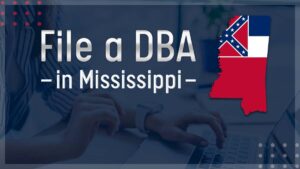Last week GlaxoSmithKline settled a claim with the US Justice Department for $750 million. However, what really made the news was that whistleblower Cheryl Eckard stood to receive $96 million for her efforts.
The concern, as raised in today’s Wall Street Journal, is that with such a potential goldmine on the back end, potential whistleblowers will be going straight to the feds before working through internal channels. For over 20 years major organizations have built extensive ethics and compliance infrastructures, including helplines and ethics training that details the suggested ways to report misconduct.
Pending regulations to be enacted under the new Dodd-Frank financial reform law have compliance officers worried that whistleblowing will be expanded far beyond the False Claims Act.
Most ethics officers would prefer that employees go to their managers first before going to the helpline, which is usually monitored by an external service that reports back to a company official.
Is the concern that potential whistleblowers will now bypass these protocols and run to the feds overblown?
The answer depends on what are the true motivators of the whistleblower. For most employees, going to the government would not be their first course of action. Whistleblowing often results in retaliation or even termination (it did for Cheryl Eckard). it is a high risk gambit for an employee.
In the Glaxo case, from August 2002 to her firing in May 2003, Ms. Eckard urged GSK managers to take swift and decisive action at Cidra, including shutting down the plant. She made a full report to the GSK Compliance Department, which treated her complaints as unsubstantiated. She then reported the fraud to the FDA in San Juan.
However, some whistleblowers definitely have an axe to grind. Many of them are looking to seek retribution against a company they feel has mistreated them. Anecdotes about some of the heroic whistleblowers from the Enron and WorldCom era paint a picture of whistleblowers who were not well liked within the company and felt no qualms of taking the neer-do-well managers to task. For these class of employees, requiring stringent internal reporting may deter them, but it also may prevent valid claims from being made.
Other employees are not looking for a windfall. They have legitimate issues and feel that the company is either not willing to listen, or is not able to effectively address the situation. Surveys have shown that 50% of observed misconduct goes unreported
For these employees, requiring them to go through internal channels as a deterrent to going to the feds first will thwart the underlying goal of the entire whistleblowing statute: to get people to report. Why deter someone who wants to do the right thing?
For the organizations that are concerned that new federal rules will unleash waves of bounty hunters, they may be well-advised to first look internally to see how safe employees feel in reporting and what they can do to ensure that no observed misconduct goes unreported. Protecting employees from retaliation will lessen the need for them to go to the government in the first place, regardless of the bounty at the end of the line.
 Sections of this topic
Sections of this topic















